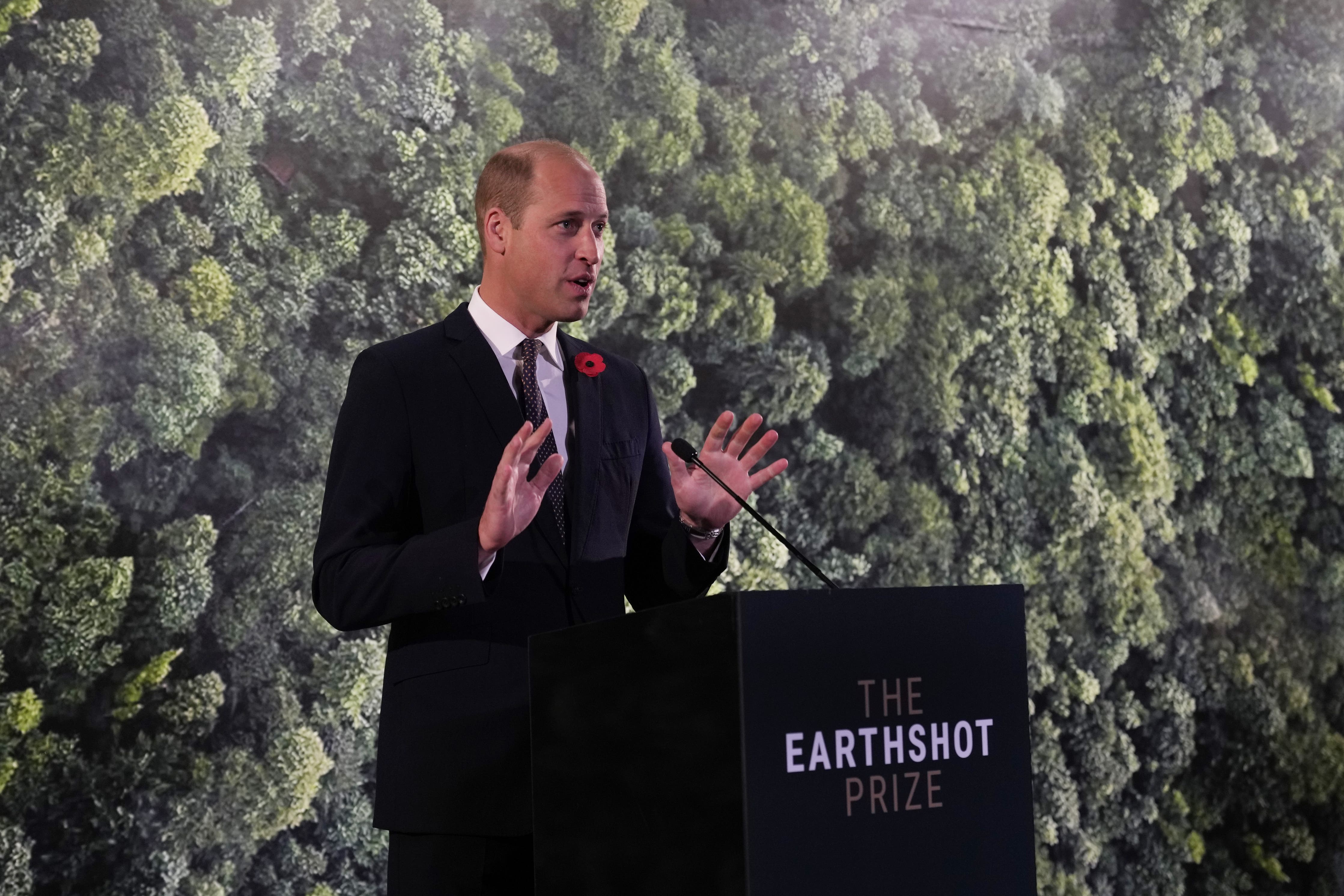William announces finalists of second Earthshot Prize
The 15 nominees include a cleaner-burning stove initiative in Kenya and a bubble barrier made in the Netherlands to prevent plastics entering oceans.

The Prince of Wales has announced the finalists for his second Earthshot Prize, with the shortlist including a “Great Bubble Barrier” to catch plastics before they reach the ocean, and a zero-waste city.
Fifteen innovative ideas from across the globe are in the running for the environmental competition in 2022, with five winners, due to be announced in Boston in the US next month, set to receive £1 million each to develop their projects.
There are also finalists from the UK for the first time, with two British-based entries being selected.
Notpla Hard Material – a start-up run by Pierre Paslier and Rodrigo Garcia Gonzalez in London – makes packaging from seaweed and plants as an alternative to single use plastic.
It has already created more than one million biodegradable takeaway food boxes for the firm Just Eat.
The other UK finalist – Low Carbon Materials (LCM), based in County Durham, uses unrecyclable plastic waste to make traditional concrete blocks carbon-zero.
Dr Natasha Boulding, one of the co-founders of LCM, said: “Until now, construction has been one of the hardest industries to decarbonise.
“With LCM, that could all change. We’ve turned concrete net-zero and now we need the world to start using it.”
William described the finalists as “innovators, leaders, and visionaries” and said they proved there are “many reasons to be optimistic about the future of our planet”
“They are directing their time, energy, and talent towards bold solutions with the power to not only solve our planet’s greatest environmental challenges, but to create healthier, more prosperous, and more sustainable communities for generations to come,” he added.
William took inspiration in launching his ambitious 10-year £50 million prize – which is designed to find solutions to repair and regenerate the earth – from John F Kennedy’s Moonshot project which advanced mankind’s achievements.
The prince said he was “so excited” to celebrate the finalists and meet the winners when he and the Princess of Wales head to Boston – Kennedy’s home town – on December 2 for the awards gala.
Among the other finalists are The Great Bubble Barrier, from the Netherlands, where air is pumped through a perforated tube to create a curtain of bubbles, which directs plastic up to the surface and into a waste collection system.
The City of Amsterdam Circular Economy is also a potential winner with its city-wide initiative to establish a fully circular economy by 2050, wasting nothing and recycling everything.
Mukuru Clean Stoves from Kenya provides cleaner-burning stoves to reduce unhealthy indoor pollution and provide a safer way to cook.
The initiative was started by Charlot Magayi, who grew up in one of Nairobi’s largest slums, Mukuru, and who used to sell charcoal for fuel.
Charlot suffered from repeated respiratory infections due to the charcoal pollution, and then sought an alternative solution after her daughter was severely burnt by a charcoal stove in 2012.
Her eco-stoves use processed biomass made from charcoal, wood and sugar cane and cause 90% less pollution than an open fire, and she plans to create an even cleaner version which burns ethanol.
Others in the final include Fleather – a leather made out of floral waste in India; Oman-based 44.01 who eliminate CO2 by mineralising it in rock; Hutan in Malaysia – a conservation organisation which creates wildlife corridors to give orangutans safe passage to new habitats; and the Indigenous Women of the Great Barrier Reef group from Australia who use ancient knowledge and digital technologies to protect the land and sea.
There are five Earthshot categories: Protect and restore nature; Clean our air, Revive our oceans; Build a waste-free world; and Fix our climate.
Bookmark popover
Removed from bookmarks